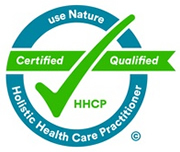useNature.com ... a Holistic Weight Loss Support Program - Food Addiction
Weight Loss - Food Addiction
Lose Weight - Gain Health
useNature's Lifestyle Magazine & Holistic Articles
Food Addiction ...
.... you may crave the food you are allergic to
Part 5 - Food Addiction
Dieter L. Editor
Author of It happened in the seventies
Here is an important question for you:
"What are 6 foods or drinks you never would like to give up"?
Obviously, I can’t see your answer, but whatever it is, if you can’t give up a specific food, you are addicted to that food.
Interestingly, it may also mean, that those are the foods you are most likely allergic too.
Yes, we may crave the food we are allergic to. And yes again, they are probably the foods most likely associated with weight gain, and therefore those may be the foods that may need to be replaced.
The good news is; a food addiction is not as hard to overcome as an addiction to cigarettes, alcohol or heroin.
Food addiction is a combination of; taste addiction, habits, allergies, chemical addiction and burned out taste buds.
By re-educating your taste you may overcome your addiction.
Lets have a good long look at sugar.
"Sugar addiction" ...... is sugar a drug?
It may be argued that sugar addiction is not a real addiction, however, who really cares, it's just a term, the real problem is out there, and most people and products have too much sugar. Apparently we can't be without it ... or can we?
If you could chose a phobia, chose a sugar phobia, it's good for you, it stops you from eating sugar.
In recent years lots of people have become fat phobic, but that hasn't helped them losing weight, because fat is not the main weight-gaining culprit, sugar, your mind and habits are.
Therefore, a fat phobia is useless, people should choose a sugar phobia instead, that would be doing much more good. I hereby declare the next year (and it always will be the next year) to be the "sugar phobia year", and furthermore, I will predict, that the average overweight person will lose 6 kg within the first 3 month, just by cutting out sugar.
If you like to start improving your diet right now, cut out sugar.
If we truly would be in control of our sugar consumption, we would be fine, but unfortunately, sugar has crept into absolutely everything, it's hard to get away from it. And there is enough evidence to suggest that as more sugar you consume, as more you want it, which can be called an addiction.
Supermarket shelves are loaded with addictive foods, everything is sweet, salty or extra spicy, all addictive, and all extremely bad for our health.
The only real way to avoid sugar is to get on to a well balanced natural type of diet, meaning, to cut out processed food and stick to fresh and unprocessed foods.
There is no need to switch to an alternative sweetener, and as you may know already, artificial sweeteners may be worse for your health than sugar.
Once we understand that sugar is simply a "taste” addiction, which we have introduced simply for taste gratification, and certainly not for nutritional values, we may just as well admit we have been sucked in; we have become totally taste conditioned.
How can we break that conditioning?
Go cold turkey; for about 7 to 10 days, have no sugar at all, including honey, sweeteners etc;. After that, your taste buds will be responding to natural sweetness in vegetables and other food sources. The need for sugar will be gone, free at last.
Why is sugar bad?
First of all, and to repeat myself, it is the over consumption which is bad, because it is contained in nearly everything we eat, which means it is out of our control.
Sugar is the number one contributing factor to weight gain, and in addition it is detrimental for blood sugar problems, like diabetics, and other metabolic processes. It is negatively associated with high blood pressure - cholesterol - skin problems - stress problems and much more, there is no metabolic function where sugar is not involved.
Australia is now officially the fattest nation in the world, with more than nine million adults classified as obese or overweight, which is extremely unhealthy and has been shown to increase risk of many chronic illnesses, including “metabolic syndrome”.
What is metabolic syndrome?
Metabolic syndrome is a condition often seen in people who are obese or overweight. This condition can affect your blood sugar control, your cholesterol levels, your blood pressure and long term can significantly increase your risk of developing heart disease and/or diabetes.
Metabolic syndrome is now recognised as a major contributing factor behind the two major causes of death in our society: heart disease and cancer. In fact, if you have metabolic syndrome, this increases your risk of heart attack and stroke by around 500%!
1 in 4 Australian adults have metabolic syndrome – could this be you?
If you have been diagnosed with one or more of the following conditions, you may have metabolic syndrome, and therefore another strong motivation to change your lifestyle:
-
High blood pressure.
-
Diabetes or at risk of diabetes.
-
Problems with your triglycerides or cholesterol.
-
Carrying extra weight around your waist.
Keeping your weight under control is the first step to addressing metabolic syndrome.
Where the fat is stored has a major influence on the risk of metabolic syndrome.
Abdominal fat (i.e. fat around your mid-section) increases your risk far more than general body fat (i.e. fat on hips and thighs).
Now to the Good News…
If you think you may already have metabolic syndrome, it’s not all bad news. Metabolic syndrome is largely caused by diet and lifestyle, so there is a lot that can be done to remedy the condition, and losing weight, by improving your diet and lifestyle will address all before mentioned serious health problems.
As you noticed, this weight loss program is all about convincing you to change your lifestyle, or more specifically, your attitude to yourself and food.
Once you come to the conclusion that you can change, weight loss is guaranteed, and not only that, but because of the changes you have achieved within yourself, the weight is going to stay off.
I am sure you know that most diets, to a certain degree, help you to lose weight; therefore the initial weight loss is hardly disputed by anyone. It’s all about keeping it off, or if you do have a lot of weight to lose, keeping on a program long enough to lose all the weight you want to lose.
Lets do some more mind changing exercises.
This statement we all know to be true; “use it or lose it”.
Doesn’t that sound fantastic, how can we make that stick to our weigh loss program?
Physically speaking, it’s very simple… check your muscles, have you used them?
If you are not moving, not doing any exercise, you will lose your muscles.
Unfortunately they are not lost in a way that they just drop off. Muscles you lose are converted to fat.
You know this already; if you eat more than you need for energy, you gain weight.
If you don’t move much, don’t do exercise but still eat as much as you would have done with exercise, guess where the excess is going to go, it converts to fat.
Many people are gaining weight, by simply not adjusting their food intake once they have stopped working or stopped some specific activity.
Understand food like petrol for your car, you wouldn’t add more petrol than you need, you wouldn’t add petrol when you are not driving. Petrol is the energy that drives your car, food is the energy that drives you, and this energy input has to be adjusted.
You either do more physical activities or you eat less, and if you eat less, you need to eat more consciously nutritious food.
My granddad was always slim, his motto was; “stop eating before you are full”.
That’s how simple it can be; but can you achieve something that simple, that’s another questions, that’s where we talk mind issues again.
Why do you eat more than you need to eat?
Is that something you can work out, sure you can, and by now you love to change and embrace change.
The following chapter will be about addressing weight Issues and Weight loss strategies
... Part 6 - Weight loss strategies - making weight change happen
... or ... go back to the Weight Loss Menu
PS. Join the Facebook Weight Loss Support Group
Article by:
Dieter L. Editor of useNature Gold Coast - Brisbane
Disclaimer:
The information provided in this article is intended for general use and for personal interest only. It should not be used or understood as suggestion or medical advice.
 useNature Editor
useNature Editor
Dieter Lüske
N.D.-D.C.H.-D.M.H.-D.H
Buy Now
It happened in the seventies
Intriguing story of personal risk-taking, self-discovery and profound change.
Dieter Luske
author . writer . editor
Tattoo Lady
useNature Registry
Holistic Practitioners & Products
© 1998 - 2025 useNature.com: Australia - Holistic Lifestyle Portal - Natural Health - Mind Matters - Books & Art
Site Map - Terms / Privacy - Global Health | Free Alpha Music | Photography | Natural Links |



